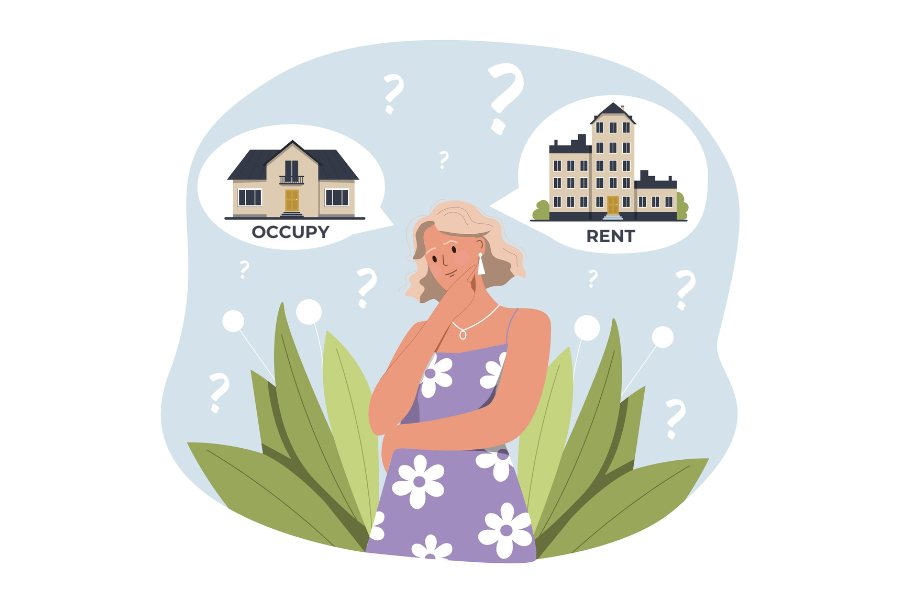Rental Property vs Owner Occupied

“Should I turn my property into a rental or live in it as owner-occupied?”
Investing in real estate is a significant financial decision, and one of the key choices you’ll face is whether to own a property for rental income or to occupy it yourself. Both options have their distinct advantages and drawbacks. Let’s explore the positives and negatives of each to help you make an informed decision.
Rental Property:
Pros:
1. Rental Income: Perhaps the most obvious advantage of owning rental property is the potential for rental income. This income stream can provide a steady source of cash flow, helping to cover the property’s expenses and even generate profit.
2. Tax Benefits: Rental property owners often benefit from tax deductions on mortgage interest, property taxes, maintenance costs, and depreciation. These deductions can help lower your overall tax liability.
3. Appreciation: Over time, rental properties tend to appreciate in value. This can result in significant capital gains if you decide to sell the property down the road.
4. Diversification: Real estate can be a valuable addition to a diversified investment portfolio, offering stability and a hedge against market volatility.
Cons:
1. Tenant Management: Dealing with tenants can be challenging. It may involve tenant turnover, property maintenance, and addressing tenant-related issues, which can be time-consuming and stressful.
2. Vacancy Risk: Rental properties can experience periods of vacancy, which means no rental income. It’s essential to have a financial cushion to cover expenses during these times.
3. Property Management Costs: If you hire a property management company, it can eat into your rental income. Managing the property yourself may save money but requires time and effort.
Owner-Occupied:
Pros:
1. Stability: Owning and residing in your property provides stability and a sense of security. You have control over your living environment.
2. Pride of Ownership: There’s a sense of pride and personal attachment to a home you occupy. You can customize it to your liking without restrictions.
3. Potential Tax Benefits: Depending on your location and circumstances, you may benefit from certain tax advantages, such as homestead exemptions.
4. Long-Term Equity: Over time, you build equity in your home as you pay down the mortgage, potentially offering financial security in the future.
Cons:
1. Limited Income Potential: Unlike rental properties, owner-occupied homes don’t generate rental income. Instead, you have ongoing expenses like mortgage payments, property taxes, and maintenance.
2. Less Flexibility: Owning and occupying a property can limit your flexibility to relocate for job opportunities or other personal reasons.
3. Ongoing Expenses: Homeownership comes with ongoing costs, including maintenance, repairs, and property taxes. These expenses can add up over time.
4. Asset Concentration: By investing heavily in your primary residence, you may concentrate too much of your wealth in a single asset, which can be risky.
In conclusion, the decision between owning a rental property and an owner-occupied home depends on your financial goals, lifestyle, and risk tolerance. Rental properties offer income potential and tax advantages but require active management. Owner-occupied homes provide stability and pride of ownership but may limit income potential. Ultimately, a balanced approach that includes both types of real estate investments may provide the best overall financial strategy.
Our team at R2B are experts at getting hundreds of Australians into their own home with little to no deposit. The R2B program offers individuals the opportunity to get out of renting and into the property market through our vertically integrated group structure, allowing us to take care of every step of the journey.
If you are interested in getting into your own home with little to no deposit, contact us today!
Phil Leahy
CEO of R2B Group
Disclaimer: This article is for educational purposes only and not professional financial advice. Please seek personal advice before making any financial decisions. The author is not responsible for any losses or damages resulting from reliance on the information provided.
